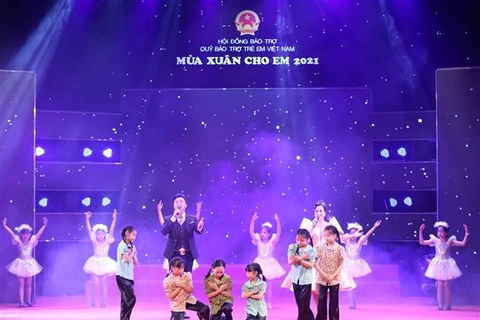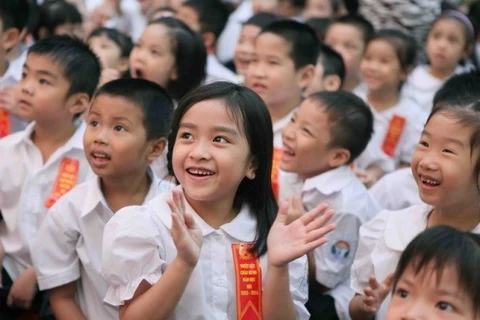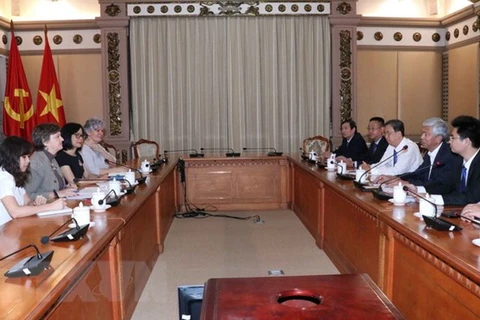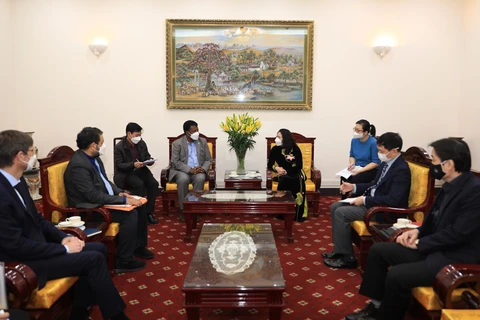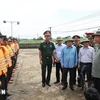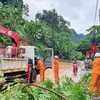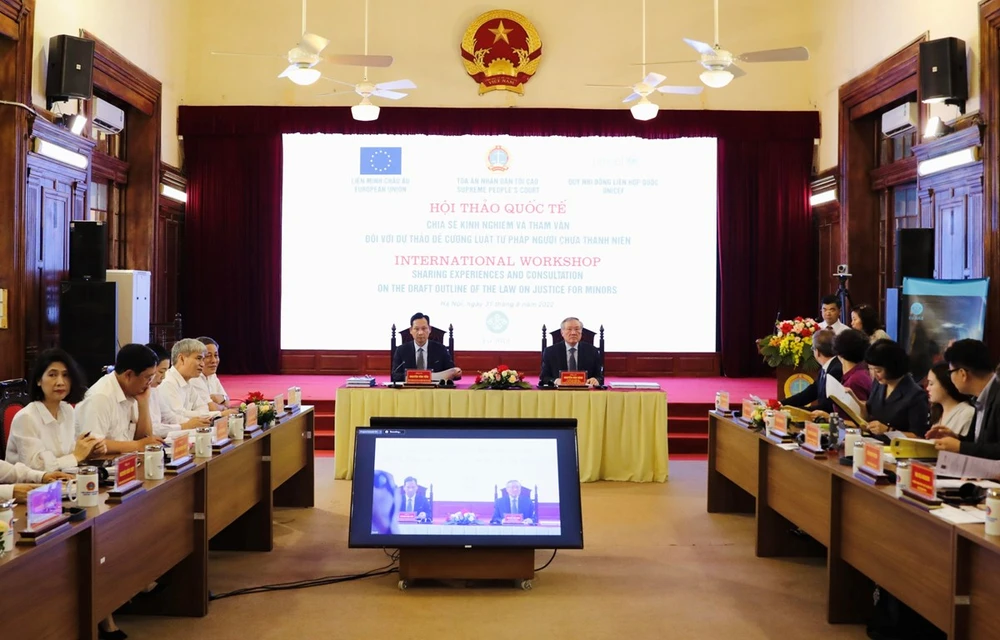
Hanoi (VNA) - The Supreme People's Court of Vietnam and the UN Children's Fund (UNICEF) have jointly held an international workshop to share experiences and consultation on the draft outline of the law on justice for minors.
The event was organised with the support of the European Union Justice and Legal Empowerment Programme (EU JULE).
By sharing international and regional experiences and best practices, the workshop served as a forum for participants to discuss strategic measures aimed at improving justice for minors and developing an outline for a comprehensive law on child justice.
Addressing the event, Chief Justice of the Supreme People's Court Nguyen Hoa Binh highlighted that Vietnam was the first country in Asia and the second in the world to ratify the United Nations Convention on the Rights of the Child, with commitments to ensuring the basic rights of children.
Therefore, the country has always protected and cared for children and constantly perfected the legal system to protect children, including compiling a draft law on juvenile justice.
Vietnam has recorded many significant and outstanding achievements in the care, nurturing, education and protection of children, initially forming a legal system of justice for minors. However, shortcomings and limitations remain in the field. Primarily, it should be pointed out that there is no law on juvenile justice.
The ideas and recommendations by experts and participants are essential contributions for the Supreme People's Court to consider and propose the National Assembly Standing Committee to include the juvenile justice law project in the 2023 Law and Ordinance Development Programme, said Chief Justice Binh, adding that over the recent past, the Government of Vietnam has made considerable efforts to reform legislation about justice for minors.
However, special handling measures for juvenile in conflict with the law are still spotted across the Penal Code, the Criminal Procedure Code, and the Law on Handling of Administrative Violations, and this leads to fragmentation and challenges in ensuring coherent, effective and efficient implementation.
Implementing the full-term law-making programme of the National Assembly, the Supreme People's Court is tasked with compiling the draft Law on Justice for Minors. The bill has six parts, with 16 chapters and 268 articles.
"UNICEF is fully engaged with this significant step toward a comprehensive law on justice for minors. We applaud the adoption of a holistic approach to introduce strategic changes for increased access to justice for all minors in conflict with the law, as well as victims and witnesses of crime," said Lesley Miller, UNICEF deputy representative in Vietnam.
Recognising the unique vulnerabilities of minors, the Convention on the Rights of the Child requires establishing a separate system with a specialised approach when working with juveniles in conflict with the law. Central to such a system is having a comprehensive law on justice for minors, as many countries have adopted, including most ASEAN countries.
"A comprehensive law on justice for minors is the cornerstone of a child-friendly justice system, outlining a distinct set of principles, objectives, procedures, and services that have been specially adapted to minors. The European Union will continue to support Vietnam with this effort," said Thomas Wiersing, chargé d'affaires of the Delegation of the European Union to Vietnam.
International keynote speakers, experts from relevant committees of the National Assembly, ministries, professional and mass organisations, supreme and provincial courts, and development agencies participated in this workshop.
Issues discussed included the need for effective inter-agency collaboration and coordination; child- and gender-sensitive handling of minors; a coherent continuum of sanctions and measures; the role of social workers in all stages of the child justice procedures; and the development of social welfare services for community-based rehabilitation of minors./.
